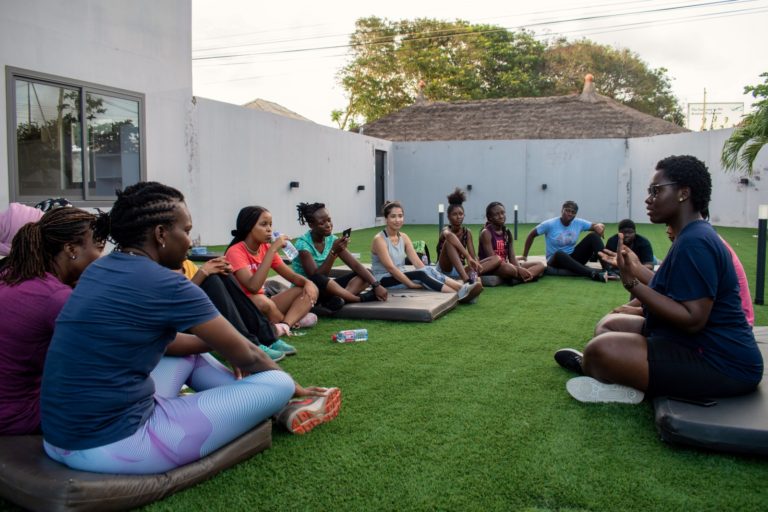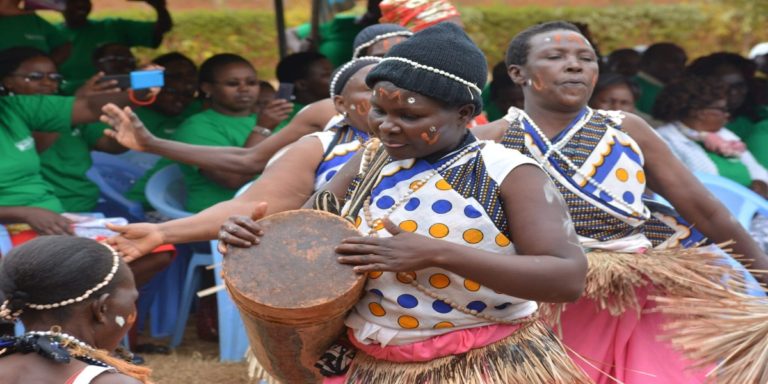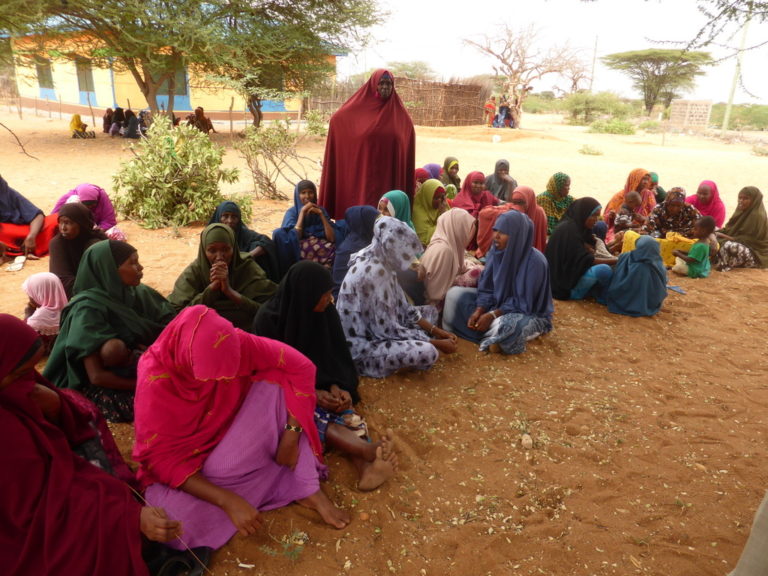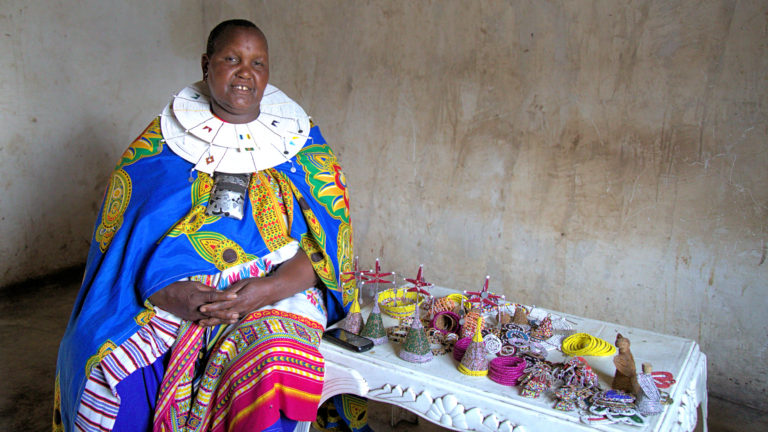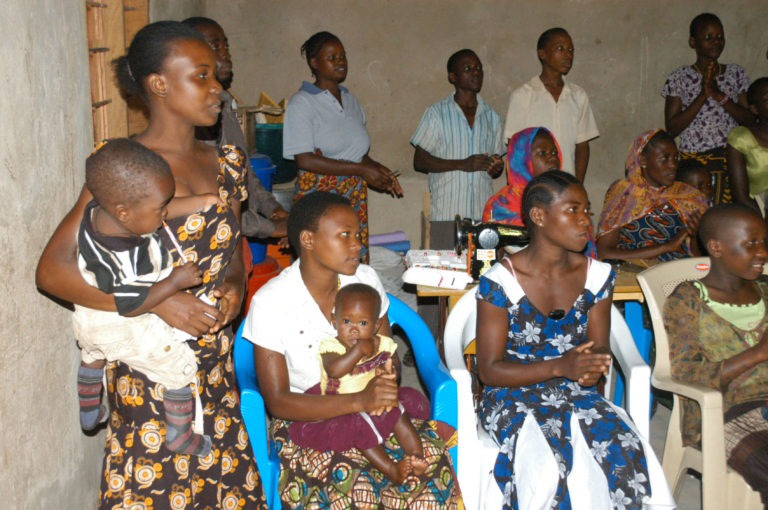A group of women gather on a synthetic lawn one Sunday in Labone, a suburb of Accra.
Clad in sports gear, they pick up little tricks from an instructor to defend themselves from attackers who may be twice their size.
Despite the roundhouse and elbow strikes being taught, the surface goal of the class was simple – give yourself a chance to run.
With a society that stacks the odds against women, there are few options better than running for women faced with the threat of sexual and gender-based violence.
The idea of self-defense classes in Accra is rare, so the quirkily named The Boring Talkative support group saw an opportunity to add another layer to its advocacy with this move to empower women who are justified in their fears.
Just how hostile is Ghanaian society towards women?
This is a question that at times prompts comparisons to horrific accounts of violence against women in notorious countries like South Africa or India.
Some have called this a subtle form of gaslighting that ignores an insidious problem that prompted the various forms of advocacy from The Boring Talkative.
Farida Yusif, the founder of the Boring Talkative, wanted to create a safe space for women with her group, especially women victims of physical and sexual abuse, and make sure they were heard.
“We are constantly faced with threats of someone trying to attack us,” she said to Ubuntu Times after a second meeting of the class back in 2020.
By the strict definition, one could set a watch by the kinds of sexual violence women and girls in Ghana face daily.
Unwanted sexual comments or physical contact all count as sexual violence. The former is rampant online.
Incidents of sexual and gender-based violence are grossly underreported and the police is not able to effectively investigate cases.
In a lot of instances, some victims are even priced out of justice.
As at 2019, doctors were charging 300 to 800 cedis ($51 to $137) to fill out police medical forms for rape victims and 1,000 to 2,000 cedis ($171 to $343) for medical opinions in legal processes.
Idrissa Hamdiya, a school teacher in Accra, was one of the participants in the self-defense class and she is very aware of these threats to women and the role they play in propping each other up.
For her helping survivors of sexual violence isn’t just about coping with trauma.
“Statistics show that for most people who have been raped once, the probability is high that they are going to get raped again,” she notes.
“When we talk about ladies who go through sexual harassment and all that, first we have to help them heal emotionally and we also have to teach them to defend themselves.”

Idrissa seemed impressed with her experience in the class and wished more women had such an opportunity.
She, like some of the women in the self-defense class, was mindful of their privileged position.
They didn’t need reminding that they were but a drop in the bucket of a larger fight.
Ghanaian society needs a new awareness of the threat posed to women if it is to get safer, stresses Farida.
She says her ultimate goal is “to educate people and reorient our society and help us unlearn certain attitudes that oppress women.”
On the other side of Accra in Haatso, Doreen Raheena Sulleyman, a journalist and women’s advocate, was nursing her second of two daughters, having recently delivered.
She is worried about the Ghana she will have to bring up her daughter in and is especially vexed by the casual grooming of children, some barely old enough for pre-school.
Doreen recalled to Ubuntu Times she once had cause to dress down a male shop keeper who spoke inappropriately to her daughter.
This is a pathway to sexual abuse she is hyper-aware of and one she will never indulge.
“Those things agitate me. They get on my nerves easily,” she says.
With her journalism, she has tried to highlight the issue of gender violence both on and offline.
She has found that state institutions like the Domestic Violence and Victims Support Unit have not only done little by way of enforcement but not offered much support to reporters striving for in-depth coverage.
For example, there doesn’t appear to be any recent organized data on gender-based violence according to suggestions from a police source to Ubuntu Times.
“It would be most disappointing if that were the case,” the source said with worry.
Recently in Ghana’s Parliament, the Minority leader also complained that relevant committees had not been privy to any crime data since 2016.
The most visible data on sexual violence available appears to be from a UK-funded report commissioned by Ghana’s Ministry of Gender, Children and Social Protection.

It showed that 30 percent of women (older than 15) experienced sexual violence at least once over their lifetime.
Doreen also works outside of mainstream media because support for her passion is lacking from the architecture of established media organizations.
She also questions the ethics of mainstream media in reporting on sexual and gender-based violence.
This hasn’t gone unnoticed by observers.
A 2018 research article by BMC Women’s Health came to the conclusion that media framing of violence against women was in Ghana “episodic in nature” and normally reported without wider social context.
The article also raised concerns with the victim-blaming language that was largely used in the news articles.
It is common to see news reports that recklessly put out the identities of victims of gender-based violence.
Doreen on the other hand says she once went as far as preparing a Non-Disclosure Agreement for victims of sexual violence she once interviewed for a story.
“They didn’t request for it but I just wanted them to feel safe, to feel secure, to feel okay to pour everything out,” she says.
Like The Boring Talkative, she too believes ultimate safety for women will come when Ghanaian society unlearns the norms that foment a hostile environment for women.
For this to happen, the state will have to take charge with shaping narratives, she says.
Private media may be popular but it seldom commits to issues like gender-based violence unless there is a sensational angle.
“If it is not bringing them [private media] money, they will not worry themselves about it,” Doreen remarks.
That leaves the state which owes its women a safer society, she insists.
And this will come about through better education – education that is so far non-existent.
“The Social Welfare Department is there. The Domestic Violence and Victims Support Unit is there and I don’t even know what they are doing,” Doreen says with frustration.
She further ropes in Ghana’s National Commission for Civic Education and Ministry for Gender, Children and Social Protection in this regard.
In as much as she distrusts the press’ handling of matters of gender-based violence, people outside metropolitan areas really only have broadcast media as their main source of information.
And the state media is best positioned to cast the widest net given its obvious reach and influence outside metropolitan areas.
“Whatever they hear from the news they believe it so they rely on the media for so many things,” reminds Doreen.
“Why can’t the Ministry of Gender set up a TV channel specifically for education on sexual violence? They can get people to educate in numerous languages being spoken across Ghana.”
Issues bordering on sexual conduct have never been mainstream in Ghana and as things stand, no conversations on sexual and gender-based violence in public schools or even churches and Doreen says this needs to change.
She tries to do her bit when she can.
“The culture of silence has a huge impact on us. Me, I try as much as possible to talk to my age mates who have children and other women,” she says.
“When it comes to issues of gender-based violence, I am not shy about me. It invigorates me.”
Beryl Darkwa, a fellow coordinator of the Boring Talkative’s activities also believes the buck stops with the state.
“For us to see proper change; for us to feel the change we are hoping for, the state must help. The state must step in,” she says.
“Like it or not, sexual and gender-based violence is also a Ghanaian problem. It is not just a Ghanaian women’s problem.”

In the meantime, as we wait for some significant change, women like Farida, Beryl and Doreen want to encourage victims to speak out more.
“We should be able to normalize talking about the trauma that happens to us because if we don’t do it, more people get away with these things,” Beryl says.
With the lack of support from the state, the only allies women probably have are themselves.
Though Beryl feels shared fears and traumas connect women, it is also a “sisterhood” that gives her hope.
“Even though they are individual traumas. It is something every other woman can relate to. So it is important that women band together.”

